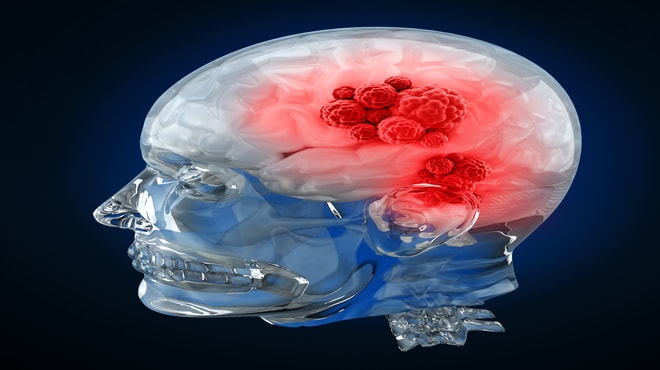People with a brain tumor may experience either general or specific symptoms. The former is caused by the pressure of the tumor on the brain or the spinal cord and the latter is caused on account of a specific region of the brain not functioning well as a result of the tumor. Causes of brain tumors may also be because of medical conditions other than the tumor.
The symptoms of a brain tumor are:
- Seizures or paralysis. Tumors can push the nerves to interfere with electrical signals which may result in seizures. It is the first symptom brain tumor. 50% of patients experience at least one seizure. However, the cause of seizures may be other neurological problems, brain disorders and drug withdrawal.
- Headaches. Headaches are another major symptom affecting over 50% of patients. These are sharp, shooting pains that worsen in the mornings or migraines. They do not subside from over-the-counter drugs.
- Personality and memory changes. Brain function can be disrupted because of tumors and this may result in mood swings and major behaviours of patients. These symptoms may occur due to tumor in the frontal or temporal lobes and certain parts of the brain.
- Memory loss and confusion. This may be caused on account of both frontal and temporal lobe tumors further affecting the decision-making and reasoning faculties of the brain. Patients may have trouble focusing, experience confusion over little things,have short-term memory issues, etc.
- Nausea and vomiting. Tumors are capable of causing pressure and hormonal imbalance due to which the patient may experience nausea and vomiting.
- Fatigue. Feeling completely exhausted or out-of-sorts is another significant symptoms. Connected symptoms are feeling irritable, and distracted.
- Difficulty in swallowing. This may result for the tumor being located at the cerebellum and in or near the cranial nerves.
- Changes in vision and other sensory perceptions. Vision disruptions may be because of the tumor having spread to the pituitary gland, optic nerve, occipital lobe and temporal lobe. Altered perception of touch and pressure is not uncommon for patients.
Other symptoms:
- Sleep issues and drowsiness.
- Changes in ability to walk and conducting daily affairs
- Balance Issue
- Facial numbness
- Depression
- Trouble with coordinated movement of limbs.




